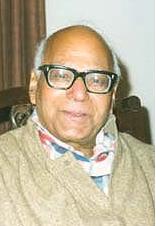A Quote by Gustavo Gutiérrez
Reason has, especially today, many other manifestations than philosophical ones.
Related Quotes
My first degree was in mathematics. That was great, but it didn't help with many of the things that puzzled me. I became a philosopher because I wanted to understand everything, especially those things that didn't make sense. And that has continued to be my philosophical motivation. That's one reason I have such a roving philosophical eye - once I have figured out a philosophical topic to my satisfaction, I find myself moving on to new problems.
I use biography, I use literary connections (as with Platen - this seems to me extremely helpful for appreciating the nuances of Mann's and Aschenbach's sexuality), I use philosophical sources (but not in the way many Mann critics do, where the philosophical theses and concepts seem to be counters to be pushed around rather than ideas to be probed), and I use juxtapositions with other literary works (including Mann's other fiction) and with works of music.
So many white people don't want to talk about race; it's uncomfortable. Many reason that slavery happened more than a century ago, and people alive today had nothing to do with it. But the particulars of these stories, from slavery to segregation to civil rights and mass incarceration, are at the marrow of life in America today.
The concept of intuition is more often used in philosophical theorizing than is the concept of observation in scientific theorizing (proportionately). One reason is that there is (proportionately) more ostensible conflict of philosophical intuitions than there is ostensible conflict of scientific observations. So much for the use of a concept of intuition in philosophical theorizing.
Sundry manifestations of nature in men and women, are greatly perverted by existing social conventions upheld by both. There are feelings which, under our predatory régime, with its adapted standard of propriety, it is not considered manly to show; but which, contrariwise, are considered admirable in women. Hence repressed manifestations in the one case, and exaggerated manifestations in the other; leading to mistaken estimates.
Quite early on, and certainly since I started writing, I found that philosophical questions occupied me more than any other kind. I hadn't really thought of them as being philosophical questions, but one rapidly comes to an understanding that philosophy's only really about two questions: 'What is true?' and 'What is good?'
Childhood is less clear to me than to many people: when it ended I turned my face away from it for no reason that I know about, certainly without the usual reason of unhappy memories. For many years that worried me, but then I discovered that the tales of former children are seldom to be trusted. Some people supply too many past victories or pleasures with which to comfort themselves, and other people cling to pains, real and imagined, to excuse what they have become.
I fully agree with you about the significance and educational value of as well as history and philosophy of science. So many people today - and even professional - seem to me like someone who has seen thousands of trees but has never seen a forest. A knowledge of the historic and philosophical background gives that kind of independence from prejudices of his generation from which most scientists are suffering. This independence created by philosophical insight is - in my opinion - the mark of distinction between a mere artisan or specialist and a real seeker after truth.
Indian spirituality, proclaimed that the true Godhead was beyond number and count; that it had many manifestations which did not exclude or repel each other but included each other, and went together in friendship; that it was approached in different ways and through many symbols; that it resided in the hearts of its devotees. Here there were no chosen people, no exclusive prophethoods, no privileged churches and fraternities and ummas. The message was subversive of all religions based on exclusive claims.
This world has seen a great many civilizations. And many of them have survived for longer periods than ours up to the present. They were all as sure as we are today of having founded the first eternal civilization. We today differ from them in having our western civilization spread to embrace the entire planet, leaving no room on any continent for any other culture to take over if we fail.






































